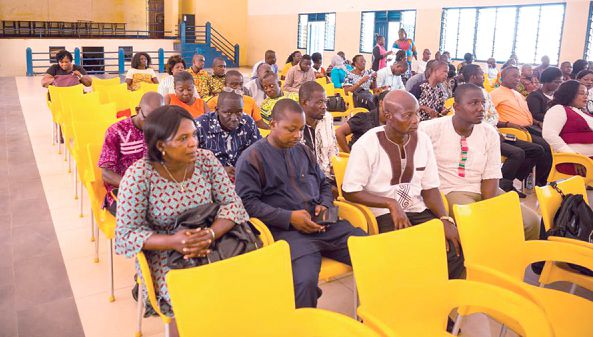
GES begins nationwide sensitisation to CSSPS
The Ghana Education Service (GES), in collaboration with the Free SHS Secretariat, has begun a nationwide sensitisation programme on the 2019 policy guidelines for the Computerised School Selection and Placement System (CSSPS).
As part of the 2019 guidelines, a candidate can, in accordance with the 2019 school register, select first to fifth choice schools from a combination of categories A, B, C, D and E.
Selection of schools
Under the guidelines, candidates will be required to select their choices from category A to D according to their priority, while the fifth choice, which will be in category E, must be a day school within the candidate’s catchment area.
Briefing the Daily Graphic on the sensitisation exercise, the Head of the Public Relations Unit of the GES, Ms Cassandra Twum Ampofo, said the guidelines directed the candidates to select a programme and residential status for each of the choices.
“In selecting their choices, candidates are allowed to select one school from category A, two schools from category B, four schools in category C or they can select all their five choices in category E.
Fifth choice
“It must also be noted that every JHS in the country has been mapped to a senior high school within its catchment area (16 kilometres radius) making it easy for candidates to identify the schools they can choose as Day to satisfy the compulsory day requirement under the category E,” she told the Daily Graphic.
Why the exercise
Ms Ampofo explained that the exercise was part of measures to ensure a successful and a hitch-free placement into senior high school this year.
She said the sensitisation exercise covered regional and district directors of education, circuit supervisors, head teachers of basic schools, parents and teachers and it was expected that all those trained would also educate the students and help them in the selection of their schools.
“It is expected that the participants would further educate parents, students and the general public about this year’s school selection guidelines,” she said.
Operation of CSSPS
Ms Ampofo explained that the CSSPS, which had been in operation since 2005, had gone through many phases of review taking into consideration, concerns of stakeholders.
“Regardless of the strides made so far, there is the need to continuously strengthen its communication channels and to update stakeholders on new policy guidelines,” she said.
